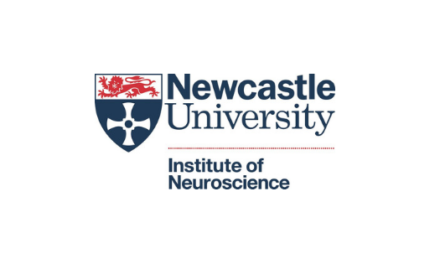This post-doctoral position is framed under the REACTIVE project funded by the Brittany Region. It will be in close interaction with the EU H2020 ICT 25 PRESENT project. In this context, we aim at creating virtual digital companions — embodied agents — that look entirely naturalistic, demonstrate emotional sensitivity, can establish meaningful dialogue, add sense to the experience, and act as trustworthy guardians and guides in the interfaces for AR, VR and more traditional forms of media. There is no higher quality interaction than the human experience when we use all our senses together with language and cognition to understand our surroundings and, above all, to interact with other people. We interact with today’s “Intelligent Personal Assistants” primarily by voice. However, communication is episodic, based on a request-response model; the user does not see the assistant, which cannot take advantage of visual and emotional clues or evolve over time. Nonetheless, advances in the real-time creation of photorealistic computer-generated characters, coupled with emotion recognition and behaviour, and natural language technologies, allow us to envisage virtual agents that are realistic in both looks and behaviour; that can interact with users through vision, sound, touch and movement as they navigate rich and complex environments; converse in a natural manner; respond to moods and emotional states; and evolve in response to user behaviour.
The post-doctoral candidate will join the Inria MimeTIC team (https://team.inria.fr/mimetic/), internationally recognized for its multidisciplinary approach to analyse, model and synthesize motion. The post-doctoral candidate will also have access to unique experimental platforms Immersia and Immermove which offer a high-tech set-up to perform user experiments in real and virtual environments and measure motion (motion capture, EMG, force plate, eye trackers). The candidate will collaborate with members of MimeTIC and Rainbow teams in Inria as well as members from M2S Lab (Univ Rennes 2).
About the research center
The research center Inria Rennes – Bretagne Atlantique, established in 1980, is fully integrated into a rich and powerful regional ecosystem, boosting strong partnerships with the best actors of research and innovation in Brittany and Pays de Loire. It comprises 3 sites (Rennes, Nantes, Lannion), 730 people, 34 research teams, 6 ERC grant winners, 31 European projects, 9 startups.
This research topic will be carried out in Rennes, the capital of Brittany and the tenth largest city in France, with a metropolitan area of about 720,000 inhabitants. Moreover, with more than 66,000 students, Rennes is also the eighth-largest university campus of France and it has the 2nd highest concentration of digital and ICT firms in France after Paris. Rennes is also known to be one of the most festive and lively cities of France, home of several music and culture festivals. In 2018, the newspaper “L’Express” named Rennes as “the most liveable city in France”.
General Objective
The general objective is to create, in collaboration with computer scientists, interactive characters endowed with levels of behavioural sensitivity and responsiveness for Virtual Reality applications. By populating virtual environments with such characters, our goal is to achieve new levels of immersive experiences, by reinforcing the feeling of presence through non-verbal communication between a user and one or more agents.
A prerequisite for the creation of reactive and expressive virtual humans is to understand how “real” humans interact and react to the behaviours and reactions of others. This is the core of the REACTIVE project. It focuses on the elements of non-verbal communication resulting from body movements.
Main activities
The main activities of the post-doctoral fellow will be:
-To establish a taxonomy of reactive and expressive behaviours during 1-to-1 interactions.
-To identify, through an approach involving movement Sciences, invariants within body reactions in situations of interaction between several people.
-To model these invariants, through an approach based on Digital Science, to create new animations of reactive and expressive virtual humans.
-To validate these models a posteriori by studying the user’s interaction with these virtual humans thus created. This will validate that these manipulated invariants are well perceived by the user and important for interaction. We will propose both a subjective evaluation of the realism perceived by the user but also a quantified evaluation of the interaction via comparisons between the movements observed in real and virtual situations.
Skills
The candidate must have a PhD degree, with a preference in Human Movement Science. The candidate must have spent at least 18 months abroad between 1 May 2016 and the start of the project.The candidate should also be comfortable with as much following items as possible: Experience in motion capture and movement analysis ; Experience in carrying out users studies; Good knowledge of programming tools (e.g., matlab) and statistics; Good spoken and written English; Good communication skills. This post doctoral position is framed under a larger project, thus the candidate will have to interact with other members of the project and assist to its meetings.
Advantages
-Subsidized meals
-Partial reimbursement of public transport costs
Salary
-Monthly net salary amounting to 2130 euros
General information
Topic: Interaction and animation
City: Rennes
Centre Inria: CRI Rennes – Bretagne Atlantique
Desired start date: 2020-01-01 (can me modified depending on the candidate availabilities)
Duration: 2 years
Deadline to apply: 2019-12-15
Contacts
Equipe Inria: MIMETIC
Anne-Hélène Olivier anne-helene.olivier@univ-rennes2.fr


